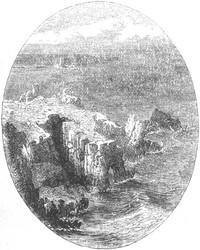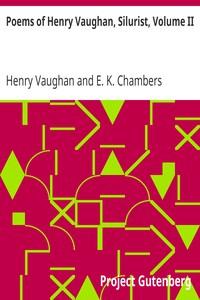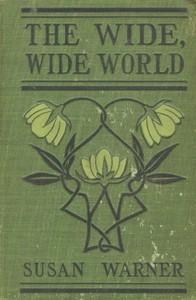Read this ebook for free! No credit card needed, absolutely nothing to pay.
Words: 159675 in 65 pages
This is an ebook sharing website. You can read the uploaded ebooks for free here. No credit cards needed, nothing to pay. If you want to own a digital copy of the ebook, or want to read offline with your favorite ebook-reader, then you can choose to buy and download the ebook.
SPECIAL INTRODUCTION
Hebrew literature contains some of the most profound and most influential productions of the human spirit. It constitutes a potent factor in modern civilization, and possesses merits which place it far above most other literatures of the world. The common salutation of the Hebrew is "Peace," while that of the Greeks is "Grace," and that of the Romans, "Safety." The Greek sought after grace, or intellectual and bodily perfection, and the power of artistic accomplishment. The Roman's ideal was strength and security of life and property. The Hebrew sought after peace, peace in the heart, as founded on a sense of Jehovah's good providence, and a moral conformity in conduct to His revealed will. While the Greek in art, literature, and even in morals, made beauty his standard, the Roman stood for power, domination and law, and the Hebrew for religion. The Hebrew, indeed, introduced into Europe the first clear conception of religion, as implied in monotheism, and a rigidly defined moral law, founded upon the will of Jehovah. The basis of morals among the Latins was political, among the Greeks aesthetic, and among the Hebrews it was the revealed will of Jehovah.
While the most important remains of Hebrew literature are comprised in the Scriptures known to us as the Bible, there exists also a voluminous mass of Hebrew writings which are not included in the sacred canon. These writings are of supreme importance and value, and the selections which we have made from them in the present volume give a good idea of their interest, beauty, and subtlety of thought.
From the very beginning of their history the Hebrews were a deeply poetic race. They were fully alive to the beauties of external nature, and no national poetry contains more vivid descriptions of the sea, sky, and the panorama of forest, stream and mountain, peopled by the varied activities of animated nature. The songs of Zion glow with poetic enthusiasm, but their principal characteristic is their intense earnestness. They are no idle lays of love and wine or warlike triumph. They depict the joy of existence as dependent upon the smile and favor of Jehovah, and all the happiness, plenty, victory and success of life are attributed, without hesitation, to nothing else but "the loving-kindness of the Lord." Yet this religious fervor becomes the basis of sublimity, pathos, and picturesqueness, such as can seldom be approached even by the finest productions of the Attic muse.
We are therefore led to the conclusion that the Kabbalah is by far the most exalted, the most profound and the most interesting of all that mass of traditional literature which comprises, among other writings, such remains as the Targums and the Talmud.
A study of Hebrew literature would indeed be incomplete unless it included the Talmud.
The Mishna itself in turn became the subject of a series of comments and elucidations, which formed what was called the Gemara. The text of the original Hebrew scripture was abandoned, and a new crop of casuistical quibbles, opinions and decisions rose like mushrooms upon the text of the Mishna, and from the combination of text and Gemaraic commentary was formed that odd, rambling, and sometimes perplexing work, "wonderful monument of human industry, human wisdom and human folly," which we know as the Talmud. The book is compounded of all materials, an encyclopaedia of history, antiquities and chronology, a story book, a code of laws and conduct, a manual of ethics, a treatise on astronomy, and a medical handbook; sometimes indelicate, sometimes irreverent, but always completely and persistently in earnest. Its trifling frivolity, its curious prying into topics which were better left alone, the occasional beauty of its spiritual and imaginative fancies, make it one of the most remarkable books that human wit and human industry have ever compiled.
The selections which we print in this volume are from the Mishna, and form part of the Sedarim, or orders; in them are given minute directions as to the ceremonial practice of the Jewish religion.
The treatise on "Blessings" speaks of daily prayers and thanksgiving. It is most minute in prescribing the position of the body, and how the voice is to be used in prayer. It specifies the prayers to be said on seeing signs and wonders, on building a house, on entering or leaving a city; and how to speak the name of God in social salutations. That on the "Sabbatical Year" is a discourse on agriculture from a religious point of view. The Sabbatical year among the Hebrews was every seventh year, in which the land was to be left fallow and uncultivated, and all debts were to be remitted or outlawed. Provision is made in this section for doing certain necessary work, such as picking and using fruits which may have grown without cultivation during the Sabbatical year, with some notes on manuring the fields, pruning trees and pulling down walls. Very interesting is the section which deals with "The Sabbath Day." The most minute and exhaustive account is given of what may and what may not be done on the seventh day.
The treatise on "The Day of Atonement" deals with the preparation and deportment of the high-priest on that day. That on "The Passover" treats of the Lamb to be sacrificed, of the search for leaven, so that none be found in the house, and of all the details of the festival. "Measurements" is an interesting and valuable account of the dimensions of the Temple at Jerusalem. "The Tabernacle" deals with the ritual worship of the Jews under the new conditions of their exile from Palestine.
All of these treatises show the vitality of Jewish religion in Europe, under the most adverse circumstances, and illustrate the place which the Talmud must have occupied in Jewish history, as supplying a religious literature and a code of ritual and worship which kept Judaism united, even when it had become banished and dissociated from Palestine, Jerusalem, and the Temple.
SELECTIONS FROM THE TALMUD
Free books android app tbrJar TBR JAR Read Free books online gutenberg
More posts by @FreeBooks


: Rambles Beyond Railways; or Notes in Cornwall taken A-foot by Collins Wilkie - Cornwall (England : County) Description and travel









